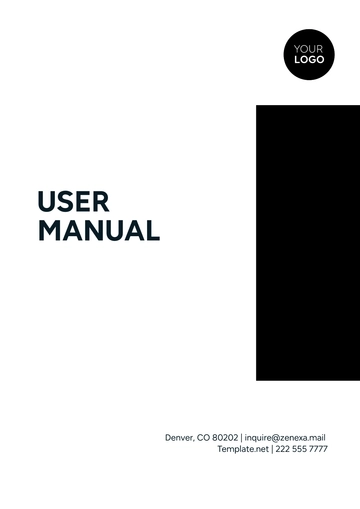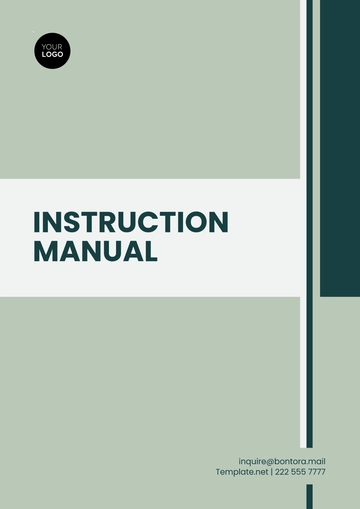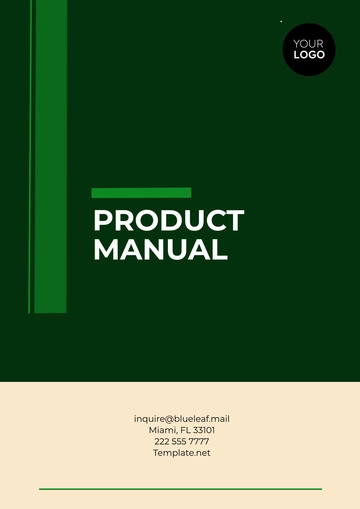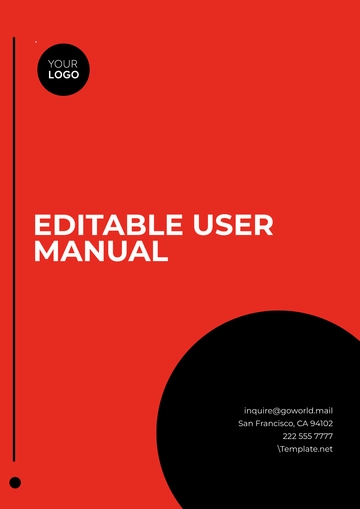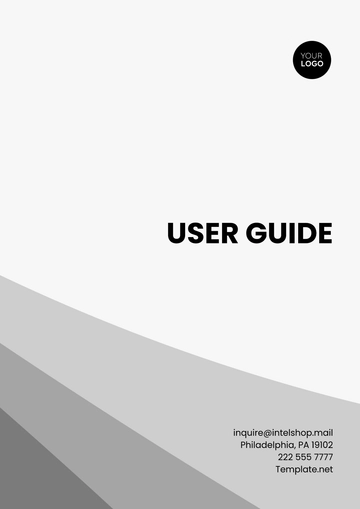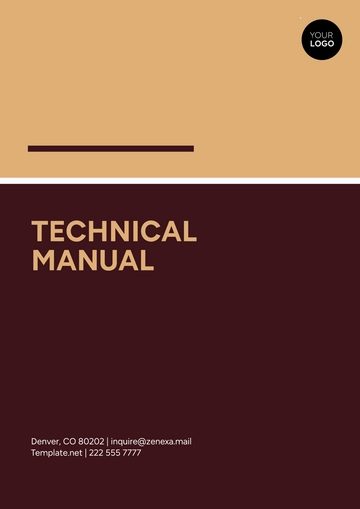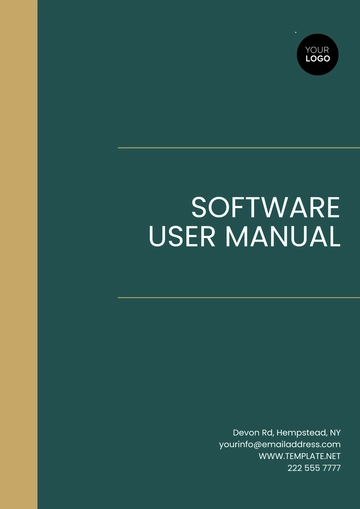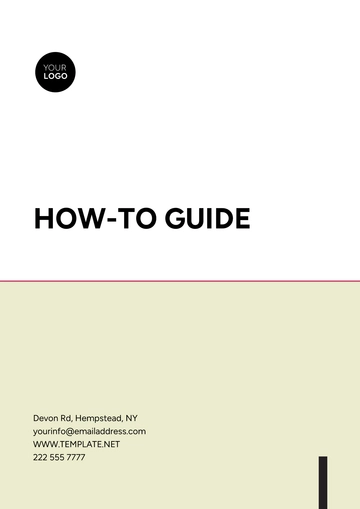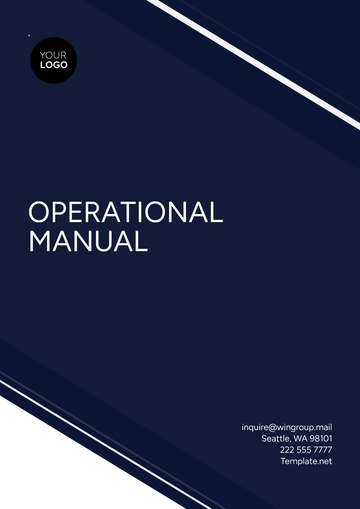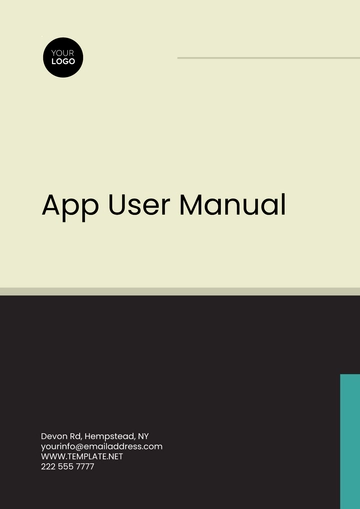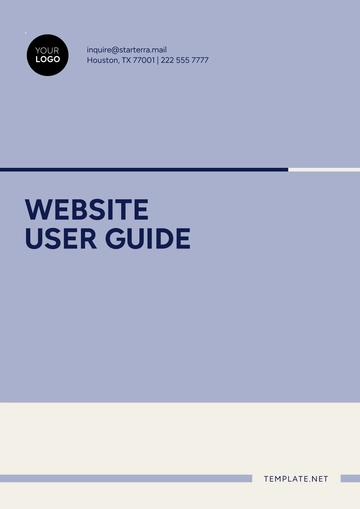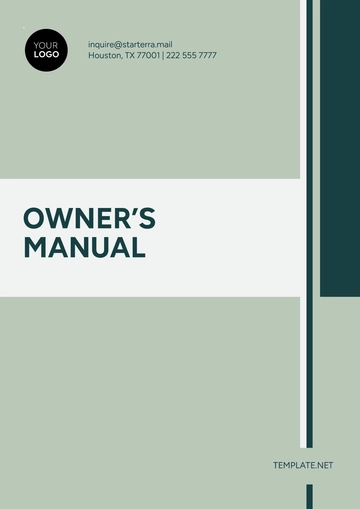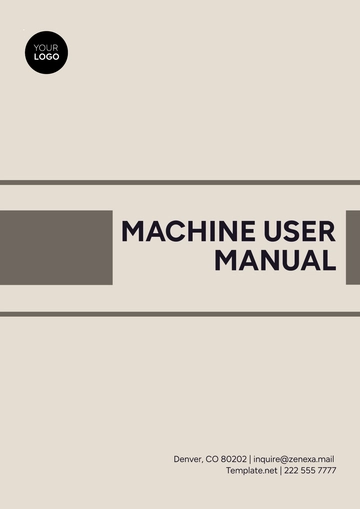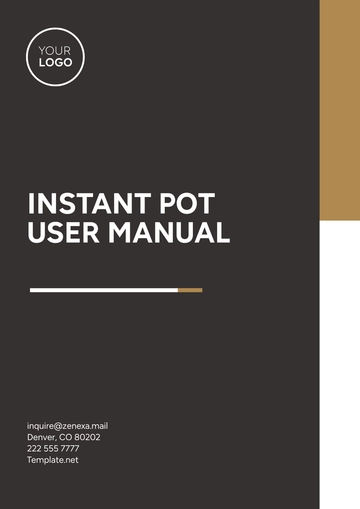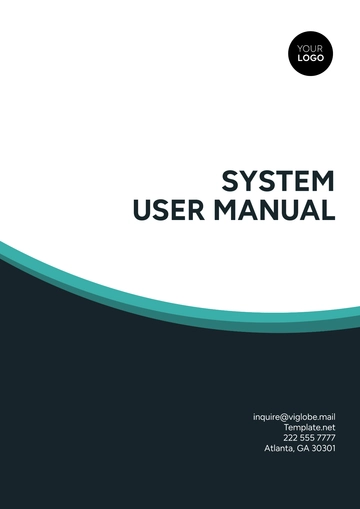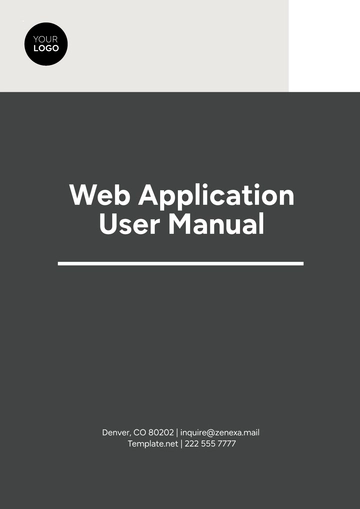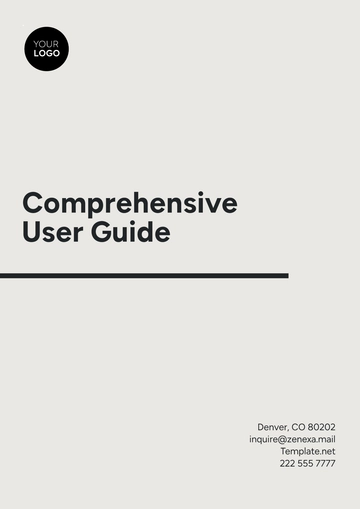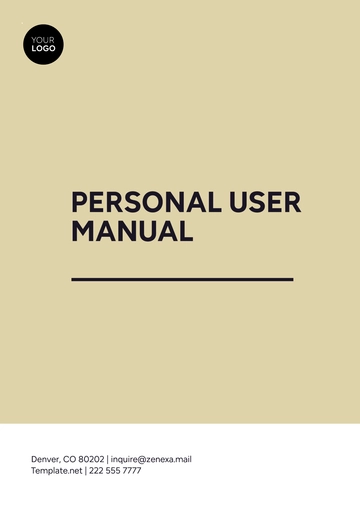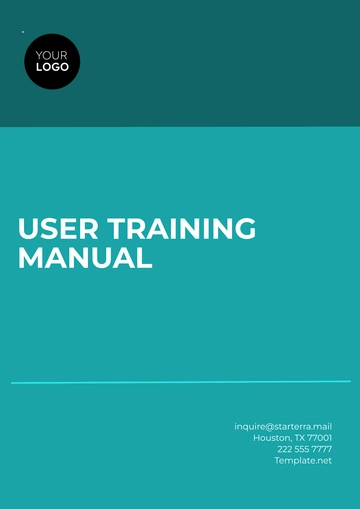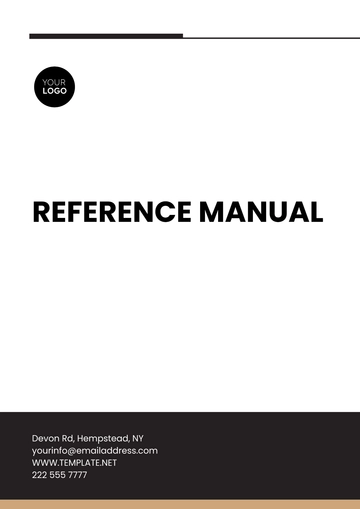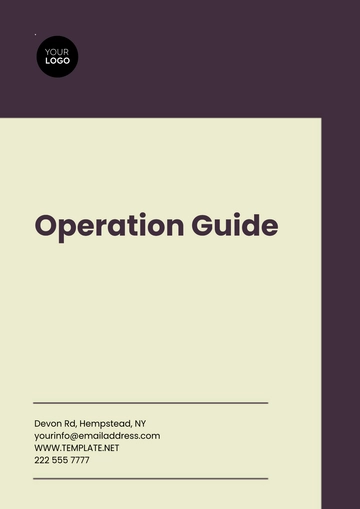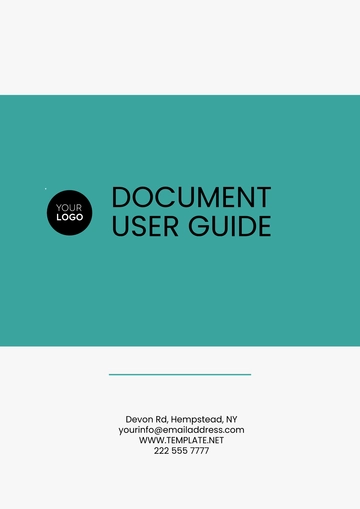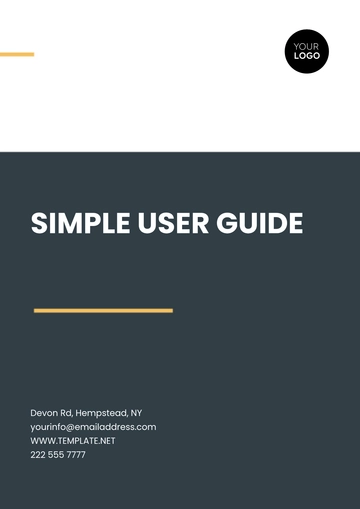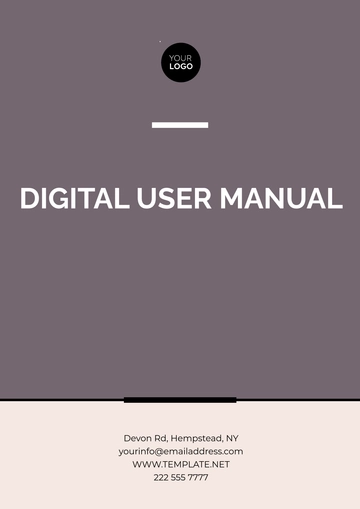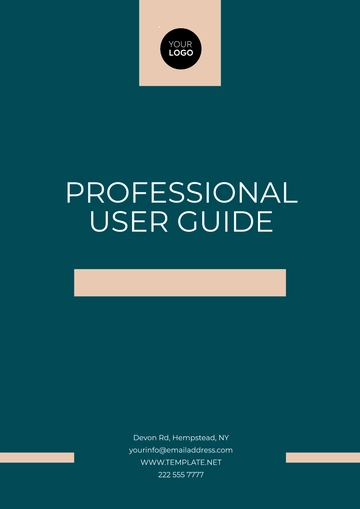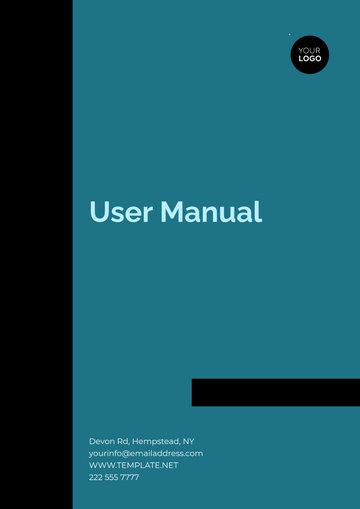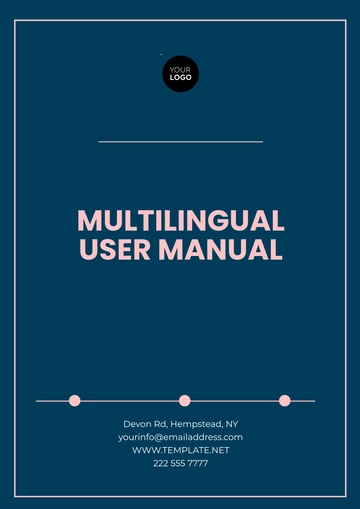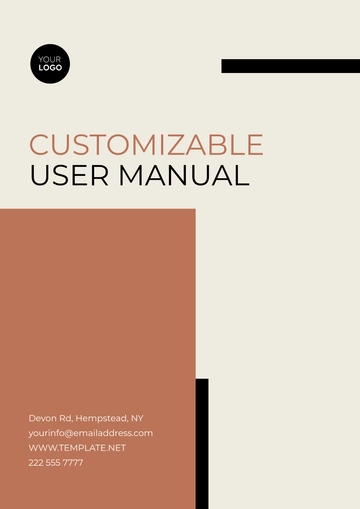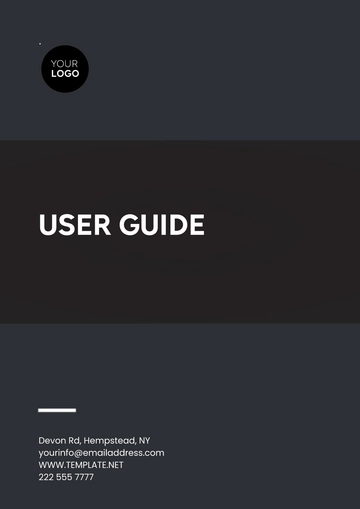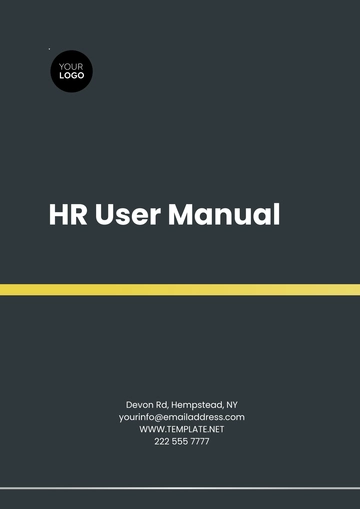Free Personal Manual
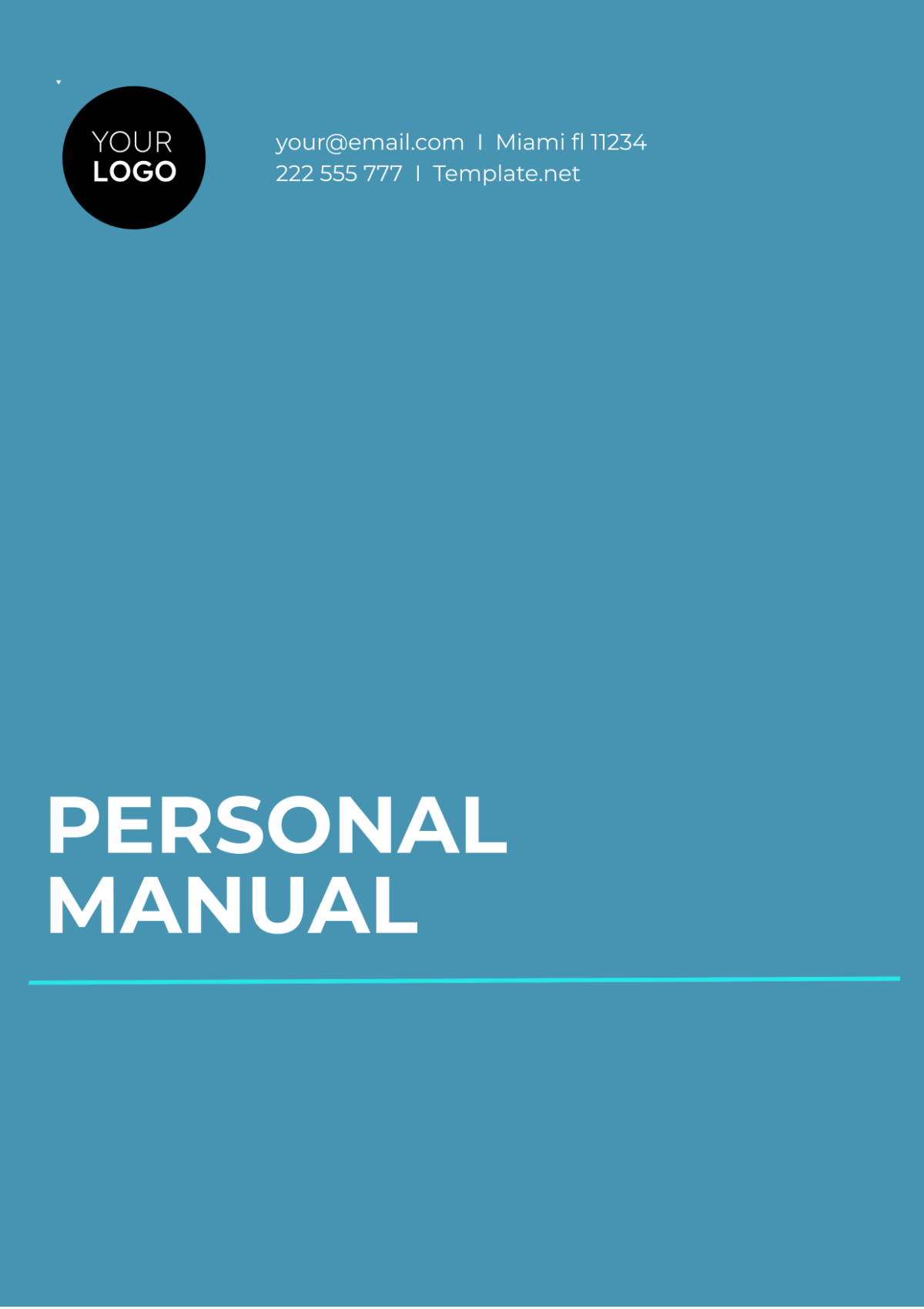
Author | [YOUR NAME] |
|---|---|
Company | [YOUR COMPANY NAME] |
Department | [YOUR DEPARTMENT] |
Date | [DATE] |
I. INTRODUCTION
Welcome to the [YOUR COMPANY NAME] Personal Manual, designed to assist you in navigating various aspects of your professional and personal life. This manual serves as a comprehensive guide to optimize your productivity, enhance your well-being, and achieve your goals. By following the guidelines outlined herein, you can streamline your daily routines and maximize your effectiveness both at work and in your personal endeavors.
II. GETTING STARTED
A. ABOUT [YOUR NAME]
[YOUR NAME] is a dedicated professional committed to continuous improvement and growth. With a background in [YOUR DEPARTMENT], [YOUR NAME] brings valuable expertise and insights to the table. This manual reflects [YOUR NAME]'s accumulated knowledge and strategies for success, tailored to suit individual needs and preferences.
B. PURPOSE OF THIS MANUAL
The primary objective of this manual is to provide you with a structured framework for managing your time, tasks, and priorities effectively. Whether you're seeking to boost your productivity, maintain a healthy work-life balance, or pursue personal development goals, this manual offers practical advice and actionable steps to help you succeed.
III. PERSONAL DEVELOPMENT
A. GOAL SETTING
Setting clear and achievable goals is essential for personal and professional growth. Use the SMART (Specific, Measurable, Achievable, Relevant, Time-bound) criteria to define your objectives. Here's how to apply it:
SPECIFIC: Clearly define what you want to accomplish.
MEASURABLE: Establish criteria for tracking your progress.
ACHIEVABLE: Set realistic goals within your capabilities.
RELEVANT: Ensure your goals align with your values and aspirations.
TIME-BOUND: Set deadlines to create a sense of urgency.
B. TIME MANAGEMENT
Effective time management is crucial for maximizing productivity and minimizing stress. Consider the following tips to optimize your time:
Prioritize tasks based on importance and urgency.
Use time-blocking techniques to allocate dedicated time for specific activities.
Minimize distractions by setting boundaries and establishing a conducive work environment.
Delegate tasks when possible to focus on high-value activities.
Regularly review and adjust your schedule to stay flexible and responsive to changes.
IV. WORK-LIFE BALANCE
A. SETTING BOUNDARIES
Maintaining a healthy work-life balance is essential for overall well-being and satisfaction. Here are some strategies for setting boundaries:
Establish clear work hours and stick to them.
Communicate your availability to colleagues and clients.
Designate specific times for personal activities and relaxation.
Learn to say no to additional commitments when necessary.
B. SELF-CARE
Taking care of your physical and mental health is paramount for long-term success and happiness. Incorporate self-care practices into your daily routine:
Get regular exercise to stay physically fit and reduce stress.
Prioritize sleep and ensure you get enough rest each night.
Practice mindfulness and relaxation techniques to manage stress and promote mental clarity.
Maintain a healthy diet rich in nutritious foods and stay hydrated.
V. COMMUNICATION
A. EFFECTIVE COMMUNICATION SKILLS
Strong communication skills are essential for success in both personal and professional relationships. Here are some strategies to enhance your communication:
ACTIVE LISTENING: Practice active listening by giving your full attention to the speaker and paraphrasing their message to ensure understanding.
CLARITY AND CONCISENESS: Communicate your ideas clearly and concisely to avoid misunderstandings.
EMPATHY: Show empathy and understanding towards others' perspectives and feelings.
FEEDBACK: Provide constructive feedback in a respectful and supportive manner to foster growth and improvement.
NONVERBAL COMMUNICATION: Pay attention to your body language and tone of voice, as they convey important cues in communication.
B. CONFLICT RESOLUTION
Conflicts are inevitable in any relationship, but how you manage them can make a significant difference. Follow these steps to resolve conflicts effectively:
IDENTIFY THE ISSUE: Clearly define the source of the conflict and understand each party's perspective.
LISTEN ACTIVELY: Listen to all parties involved to gain a comprehensive understanding of the situation.
FIND COMMON GROUND: Identify common goals or interests and work towards a mutually acceptable solution.
COMMUNICATE CONSTRUCTIVELY: Express your concerns and viewpoints respectfully, avoiding blame or criticism.
SEEK COMPROMISE: Be open to finding middle ground and exploring alternative solutions that meet everyone's needs.
FOLLOW UP: Once a resolution is reached, follow up to ensure the issue is fully addressed and any agreements are upheld.
VI. PROFESSIONAL DEVELOPMENT
A. CONTINUOUS LEARNING
Investing in continuous learning and skill development is essential for staying relevant and competitive in today's rapidly evolving workplace. Here are some ways to foster ongoing professional growth:
ATTEND WORKSHOPS AND SEMINARS: Participate in relevant workshops, seminars, and training programs to expand your knowledge and expertise.
SEEK FEEDBACK AND MENTORSHIP: Solicit feedback from colleagues and mentors to identify areas for improvement and growth.
READ WIDELY: Make a habit of reading books, articles, and industry publications to stay informed about current trends and best practices.
TAKE ONLINE COURSES: Explore online learning platforms to access a wide range of courses and resources on various topics.
NETWORKING: Build and nurture professional relationships through networking events, conferences, and online communities.
B. CAREER PLANNING
Developing a clear career plan can help you set meaningful goals and make informed decisions about your professional trajectory. Consider the following steps when creating your career plan:
SELF-ASSESSMENT: Evaluate your strengths, weaknesses, interests, and values to identify potential career paths.
SET GOALS: Define short-term and long-term career goals that align with your aspirations and priorities.
RESEARCH: Research different industries, companies, and roles to gather information and identify opportunities.
DEVELOP SKILLS: Identify the skills and qualifications required for your desired career path and develop a plan to acquire them.
SEEK GUIDANCE: Seek advice from mentors, career coaches, or professionals in your desired field to gain insights and guidance.
VII. FINANCIAL MANAGEMENT
A. BUDGETING
Effective budgeting is crucial for managing your finances and achieving your financial goals. Follow these steps to create and maintain a budget:
TRACK EXPENSES: Keep track of your expenses, including both fixed and variable costs, to understand where your money is going.
SET FINANCIAL GOALS: Identify short-term and long-term financial goals, such as saving for a vacation, buying a home, or retirement.
CREATE A BUDGET: Based on your income and expenses, create a budget that allocates funds towards your various goals and priorities.
MONITOR AND ADJUST: Regularly review your budget and make adjustments as needed to ensure it remains aligned with your financial objectives.
EMERGENCY FUND: Build an emergency fund to cover unexpected expenses and financial setbacks, aiming for three to six months' worth of living expenses.
B. DEBT MANAGEMENT
Managing debt responsibly is essential for maintaining financial stability and achieving long-term financial success. Consider the following strategies for managing debt effectively:
PRIORITIZE HIGH-INTEREST DEBT: Focus on paying off high-interest debt, such as credit card balances, first to minimize interest costs.
CREATE A REPAYMENT PLAN: Develop a repayment plan that allocates extra funds towards paying down debt each month, starting with the highest-interest debts.
CONSOLIDATE DEBT: Explore options for consolidating multiple debts into a single loan or credit card with a lower interest rate.
AVOID NEW DEBT: Limit new debt by practicing responsible spending habits and avoiding unnecessary purchases on credit.
SEEK PROFESSIONAL ADVICE: If you're struggling to manage debt, consider seeking assistance from a financial advisor or credit counselor for personalized guidance and support.
VIII. HEALTH AND WELLNESS
A. PHYSICAL HEALTH
Maintaining good physical health is essential for overall well-being and quality of life. Incorporate the following habits into your routine to support your physical health:
REGULAR EXERCISE: Engage in regular physical activity, such as walking, jogging, swimming, or yoga, to improve cardiovascular health, strength, and flexibility.
HEALTHY DIET: Eat a balanced diet rich in fruits, vegetables, whole grains, lean proteins, and healthy fats to provide your body with essential nutrients.
HYDRATION: Drink plenty of water throughout the day to stay hydrated and support bodily functions.
REGULAR CHECK-UPS: Schedule regular check-ups with your healthcare provider for preventive care and early detection of any health issues.
B. MENTAL HEALTH
Prioritizing mental health is just as important as physical health for overall well-being and resilience. Here are some strategies to support your mental health:
PRACTICE STRESS MANAGEMENT: Use stress-reduction techniques such as mindfulness, meditation, deep breathing exercises, or journaling to manage stress effectively.
SEEK SUPPORT: Reach out to friends, family members, or mental health professionals for support during challenging times.
SET BOUNDARIES: Establish healthy boundaries to protect your mental well-being and avoid burnout.
TAKE BREAKS: Incorporate regular breaks into your routine to rest, recharge, and engage in activities you enjoy.
IX. CONCLUSION
Congratulations on completing the [YOUR COMPANY NAME] Personal Manual! You now possess a comprehensive guide to empower you in both your professional and personal life. By implementing the strategies outlined within this manual, you have the tools and knowledge necessary to optimize your productivity, enhance your well-being, and achieve your goals.
Remember, success is a journey, not a destination. Continuous growth and improvement are key to reaching your full potential. Use this manual as a roadmap, but don't hesitate to explore new avenues and adapt your approach as needed. Life is dynamic, and flexibility and resilience are essential traits for navigating its twists and turns.
- 100% Customizable, free editor
- Access 1 Million+ Templates, photo’s & graphics
- Download or share as a template
- Click and replace photos, graphics, text, backgrounds
- Resize, crop, AI write & more
- Access advanced editor
Discover the ultimate Personal Manual Template at Template.net, your one-stop destination for premium document templates. Crafted for efficiency, our editable and customizable templates empower you to create personalized manuals effortlessly. Seamlessly edit using our Ai Editor Tool, ensuring a tailored fit for your needs. Elevate your documentation experience with Template.net today.
